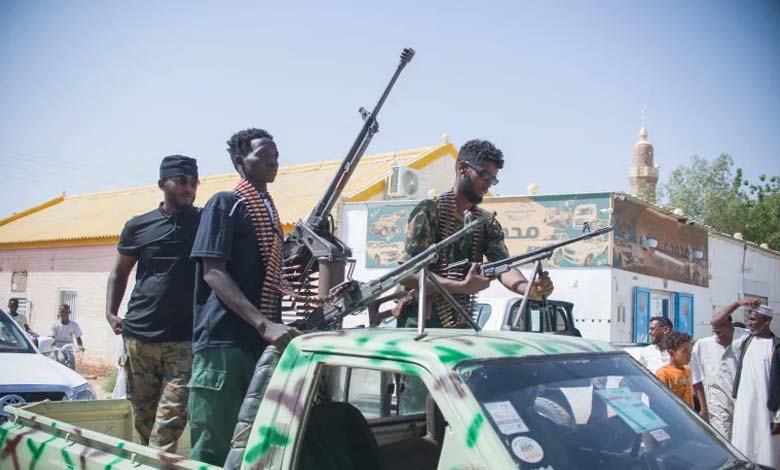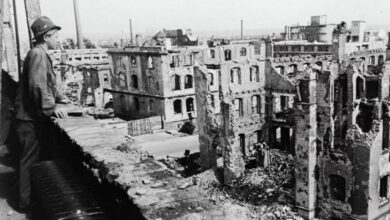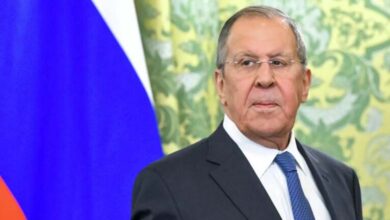The Role of Islamist Militias in the Sudan Conflict Worries Arab States Opposed to the Muslim Brotherhood

The growing military capabilities of Islamist militias involved in Sudan’s ongoing conflict are raising alarm among Arab countries that have designated the Muslim Brotherhood as a terrorist organization, according to a recent report by the Italian news agency Nova.
-
Escalation of Tensions Between Sudanese Army Leaders and Islamist Militias: What Are the Causes?
-
Juba Opens Fire on the Sudanese Army and Its Islamist Militias… Details
Since the outbreak of civil war in April 2023, Sudan’s regular army has called on civilians to join the armed resistance against the Rapid Support Forces (RSF). As part of this effort, twelve “Popular Resistance Battalions” have been formed throughout the country.
The most prominent among them is the 4th Battalion, known as the Al-Baraa ibn Malik Battalion. Its combat strategies, leadership structure, and growing numbers have sparked concerns about regional stability, according to Sudanese and Arab sources cited by Nova.
-
The Sudanese Army Under Scrutiny: Systematic Violations Against Civilians and Suspicions of Chemical Weapons Use
-
The Sudanese Army Under Scrutiny: Systematic Violations Against Civilians and Suspicions of Chemical Weapons Use
Sudanese analyst Mohamed Al-Asbat told Nova that the battalion comprises members of extremist Islamist militias, including figures from the regime of former President Omar al-Bashir, who seized power in 1989 and was ousted in 2019. Many of the battalion’s fighters are young men affiliated with the Islamic Movement, closely linked to the Muslim Brotherhood. The group is led by Al-Misbah Abu Zayd Talha, who ran a household goods store in Khartoum prior to the civil war, according to Raseef22.
Estimates suggest that the battalion consists of up to 50,000 fighters distributed across several Sudanese provinces. The militia reportedly aims to transform itself from a battalion into a fully structured corps.
-
The Muslim Brotherhood Threat Resurfaces in Sudan: Al-Baraa Militia Armed Beyond State Oversight
-
Political Blackmail and Islamist Dominance over the Sudanese Army: No to War, Yes to Revolution
According to Nova, the battalion receives technical and logistical support from both Turkey — which offers significant financial and political backing to the Muslim Brotherhood — and Iran, both of which are known supporters of Islamist groups in the region, including Hamas in Gaza.
Sudanese newspaper Al-Rakoba reports that the group receives specialized drone warfare training from Iran’s Islamic Revolutionary Guard Corps (IRGC). The independent NGO Emergency Lawyers Organization (ELO) has accused the battalion of carrying out indiscriminate drone strikes in the Darfur region.
-
Sudanese Army Under Fire: Allegations of Civilian Abuses and Obstruction of Humanitarian Aid Amid International Calls to End the War
-
Precision Strikes Expose Shadow Alliances: Foreign Experts Killed and Islamists Unveiled in Port Sudan
Jassim Mohamed, head of the European Centre for Counterterrorism and Intelligence Studies in Germany, explained that the alleged Turkish and Iranian backing of Islamist forces in Sudan forms part of a broader strategic escalation in the Red Sea region. He added that while the current threat to Europe remains limited due to geographical distance, the instability in Sudan and along the Red Sea coast poses a serious risk to maritime security and European interests in the area.
According to a report from the European Centre, a Turkish company is allegedly involved in covert arms smuggling to the Al-Baraa ibn Malik Battalion.
-
Sudan Between the Hammer of the Military Islamist Alliance and the Anvil of Democratic Transition
-
The Situation in Sudan: The Army and the Islamic Movement in an Unstable Scene
Sudanese media describe the battalion as a “spearhead” in offensives against the RSF, and accuse it of numerous human rights violations, including torture, unlawful detentions, and extrajudicial killings.
Al-Asbat emphasized that the battalion’s members are “among the staunchest supporters of jihadist ideology” and maintain connections with other extremist organizations operating in the region. Their growing power within the Popular Resistance Battalions is attributed to their military experience rooted in the former Islamist regime.
Arab states such as Bahrain, Egypt, Saudi Arabia, and the United Arab Emirates — all opponents of the Muslim Brotherhood — are monitoring these developments with increasing concern.












